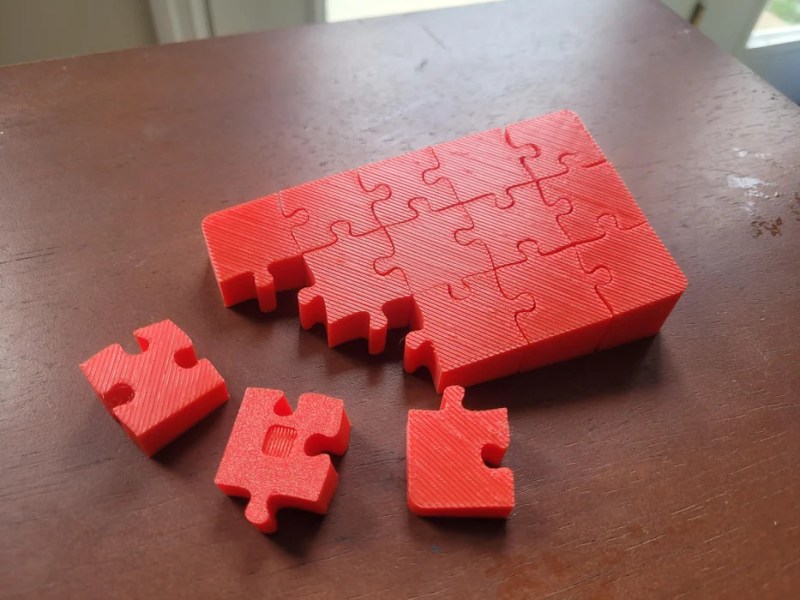There’s no reason why a visually impaired person can’t enjoy putting together a jigsaw puzzle. It just needs to look a little different. Or, in this case, feel different.
16-year-old [feazellecw] has come up with just the solution — a puzzle with pieces that have both a defining texture and a slant in the z-height to them. While there is no picture on the puzzle face to speak of, instead there is a satisfying end result. You could change it up and add a relief image if you wanted, as long as you still observed the diagonal lines, the z-slant, and the little hole in the bottom that helps differentiate it from the top.
As [feazellecw] says, it’s important to find a box to help keep the pieces together during assembly; a 3D-printed box would be a nice touch. Files for this 15-piece puzzle are available if you’d like to make one for yourself or someone else, but just the idea might inspire you to make your own variant.
Don’t like putting puzzles together? Build a robot to do it for you.

















meybe put transistor, battery, led and other electronic stuff and make a circuit electronic?
I made some glasswork that was intended for visually impaired people, that put largely invisible but tactile dots on to make largely invisible braille, and it was a fun project. I think topological jigsaw-like puzzles would be a really cool addition to this, especially since we have at least okay 3d scanners so you could do like 10×15 piece faces, for instance.
Any puzzle that is based on shapes instead of colors can be used by blind and visually impaired. I am visually impaired, and one type of “puzzle” I enjoy is disassembling and repairing various devices. For example on various occasions I had to fix or modify my 3D printer, and I mostly did that by touch alone…
Try searching for 3d puzzles, also crystal puzzles, there are some pretty interesting ones out there
I can’t confirm it but from the picture the little nubbins and holes all look to be the same shape. Like, the couple of pieces sort of in the center look identical and so this puzzle doesn’t have a single solution. Not good or bad per se.
.
Regular jigsaw puzzles have different shaped nubbins and corresponding holes so in theory visually impaired could do those as well without the benefit of the picture you’re making. I vaguely recall a puzzle called Red Menace that was just …red. And I got my mom a 1000 piece impossible puzzle that is just clear lexan. No picture, you can’t even tell which way is up, and there are a bunch of false edges and corners.
“And I got my mom a 1000 piece impossible puzzle that is just clear lexan.”
So, do you ever wonder why she shows favor to your siblings?
B^)
I work with deafblind people, and regularly teach adult students how to communicate with them – I’d love the STL files for this to use as an activity for the students to live the experience, as well as give some of my clients the opportunity to solve a puzzle for themselves…
They’re in the links!